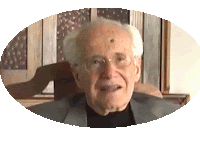Another connection made! Thank you
Marjorie for writing your article on her husband reclaiming his German
citizenship. Julie contacted her because of it and contacted me thanks to
Marjorie.
Now I have a bit more information on
another child of Bernhard and Henriette (Eisner) Steuer. Up until now I only
knew that Eva was born on 29 Oct 1866, Brzezinka, Upper Silesia, Prussia.
Eva was Bernhard and Henriette’s
first born, as far as I know. She and her sister Lina were the only two
daughters that lived long enough to marry. They were also the only two that I
couldn’t find information on their spouses and/or descendants.
This Eva Steuer married Herman
Hiller. They moved to Breslau at some point. I was told they owned a successful
clothing store called Hillers Department store. Herman was a commodities trader.
So far only know about Herman and
Eva’s daughter Ellie who married Ernest
Cohn/Kohn. She was listed as a survivor in
the newspaper “Aufbau, Sep 1944-Sep 1946” in the “Published Lists of Survivors”.
She died 25 Jan 1956 (Gunther was 10 years old).
Ellie’s husband Ernest was forced to
leave his family behind by the Nazis when he fled Germany to Cuba, and later to
the USA. Ellie and Ernest’s children were put in an orphanage and stayed there
until their father was able to arrange for their escape in 1939 with the help
of Jewish charities. Everything they owned was left behind.
Ernest sent his two daughters to
South America. I was told that Gunther escaped from a Jewish orphanage in
Berlin, in 1939, on the last ship out before war was declared. Gunther departed
Hamburg on the SS Hamburg on 10 Aug 1939. He arrived in New York on 18 Aug 1939
at the Port of New York. On the passenger manifest he was listed as
Guenther/Hermann Nathan and he was 13 years old.
Gunther registered for the US Army
on 05 Sep 1944. Ernest was listed as next of kin on his WWII draft information.
They sent him to train with the Office of Strategic Services, a wartime
intelligence agency. At the time he lived in St. Joseph, Buchanan County,
Missouri. He found himself back in Berlin, this time hunting war criminals.
He spoke fluent German and worked undercover finding former SS officers, prison guards and other Nazis suspected of murdering Jews and other ethnic minorities during the Holocaust. One story relayed is:
He spoke fluent German and worked undercover finding former SS officers, prison guards and other Nazis suspected of murdering Jews and other ethnic minorities during the Holocaust. One story relayed is:
On one occasion, he tracked a former
high-ranking colonel to a political meeting in a beer hall. The former colonel
had been tipped off that he was being followed. While turned away from Mr.
Kohn, the former colonel pulled his pistol, turned and pointed it at Mr. Kohn
and was about to pull the trigger. That’s when a U.S. soldier accompanying Mr.
Kohn saw what was happening from across the room and shot the colonel in the
head.
“That was as close as he got to getting killed.”
Gunther returned to the US and settled in St.
Louis, Missouri where he started and operated his own business. Many years
later he was one among others who helped found the St. Louis Holocaust Museum.“That was as close as he got to getting killed.”





